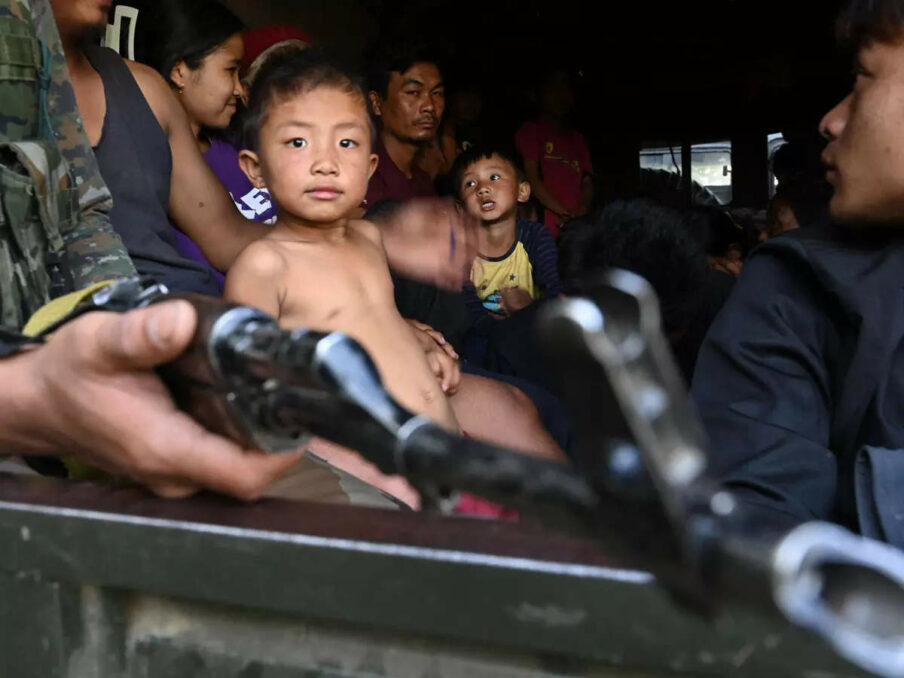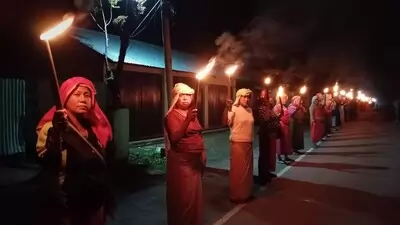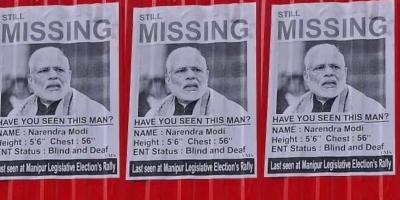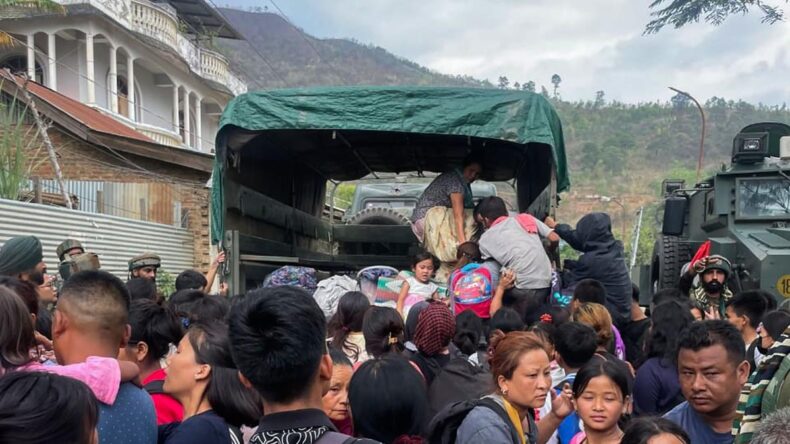He questioned whether a state that couldn’t secure its police stations can be relied upon to provide “quality shelters,” while also raising concerns about the state of the “hurriedly” established refugee camps.

Gurbachan Jagat, a former governor of Manipur, asserted that the state’s current predicament is worse than the height of violence experienced in places like Punjab and Jammu & Kashmir.
What defies all sense is the fact that police stations and their armories have been attacked across the state, with thousands of firearms and enormous amounts of ammunition looted, according to Jagat, a former IPS officer who has also served in J&K and Punjab. This did not occur in the worst of times in J&K, Punjab, Delhi, or Gujarat, and the state’s security forces would still have difficulties as a result of the stolen weapons.
In spite of the illusion of a tranquil and leisurely manner of life, he claimed that Manipur was always marked by primitive instincts and animosity for the native inhabitants. According to Jagat, tribal boundaries were firmly delineated and largely observed, with some cross-border movement that finally revealed fault lines that the new wave of violence was directed at.
He conveyed his sympathy for the residents of the state, where more than a hundred people have perished, numerous others have been hurt, thousands of homes and villages have burned, and the people have therefore lost their means of subsistence.
Let’s go on to the thousands of people who have lost not just family members but also their homes, animals, and sources of income. Thousands of people have fled their homes and villages in the valley and the hills, seeking safety in nearby states or in makeshift camps for refugees. Some might have crossed the border into Myanmar as well. He declared that whatever little was left after the initial barrage of violence must now have been annihilated.
He questioned the conditions of the hurriedly constructed refugee camps and questioned how one can expect a state to provide “quality shelters” when it can’t even defend its police stations.
I’m not sure if the state administration can observe the operations in these camps or how much its authority has been restored. It must be done in a warlike manner, including by providing medical care, food, shelter, and other necessities. It is a large responsibility, and Jagat wrote: “I hope and pray that people in charge of the state government show up to the task.
The former governor emphasized the necessity of rehabilitating those who have been uprooted due to continued conflict, stating that they cannot be forced to live in refugee camps or with their relatives in neighboring states for the rest of their lives.
They must return to their own habitat after being forcibly ripped from it. He claimed that the task of rehabilitation would put our nation and the state of Manipur to the test.
But he also noted that prior attempts by the state at rehabilitation had failed. In the past, whenever and whenever such disasters occurred that uprooted people, we were unable to return them to their natural environment. Although never identical to what they had lost, people are able to discover new sources of income in larger states and cities. However, Manipur is a small state, and its residents are accustomed to residing in its hills and valleys. How will they get the means to start new lives and where will they go? Jagat enquired.
In order to lessen the suffering of the people of Manipur on an individual and a collective level, he urged the federal and state governments to collaborate in developing an extensive reconstruction plan.
What has been done by far to bring back peace in Manipur?
Women of the burning state of Manipur have been organizing peace marches across the state, urging people to stop the violence and save each other.

Hanthenam Anita Devi, a 40-year-old college lecturer, recently participated in a similar peace march. She stated that we came out today in solidarity with all of these ladies to express our desire for peace and specific actions. The reason [Manipur] is known as “mini India” is because nearly 35 communities had lived there for a long time with no problems, and now suddenly there has been violence.
Prior to the recent violence, the local government had stated that schools in the area will reopen. However, the government has now ordered that all schools remain closed until July 8. Additionally, internet services have been suspended for the past two months.

The Narendra Modi administration, which also holds power over the state’s local government, has come under fire for not doing enough to promote peace in the area. Both sides are angry at the administration, and peace is still elusive.
The chief minister of the nearby Assam state and a key member of Modi’s Bharatiya Janata Party, Himanta Biswa Sarma, stated on Saturday that the situation in Manipur was improving despite the fact that Modi has so far been silent on the matter. He informed the media that things were quickly returning to normal.












